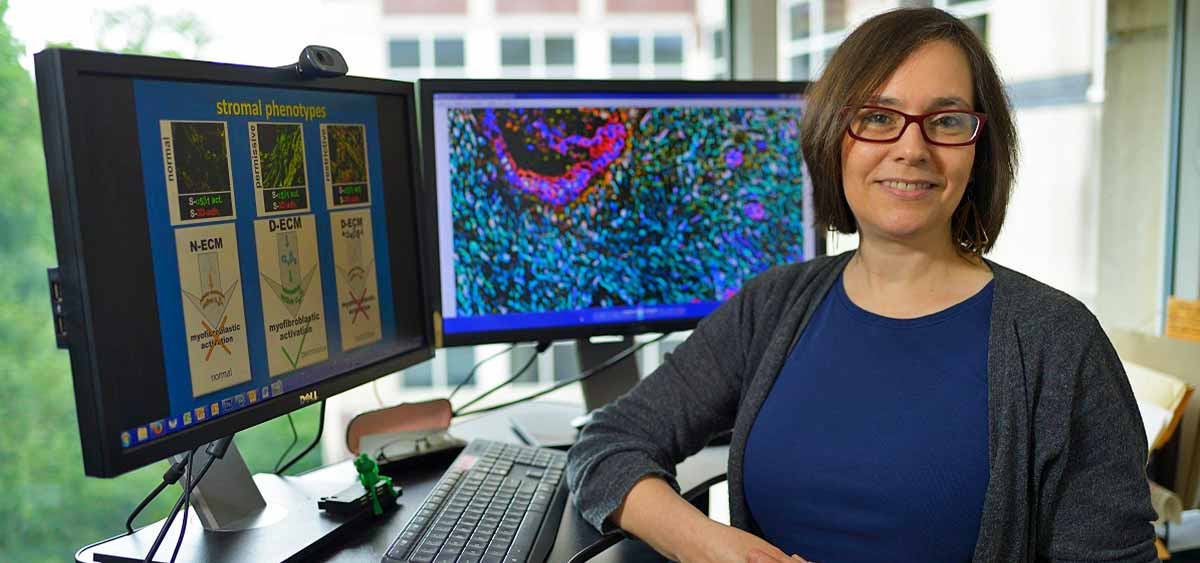
PHILADELPHIA (September 23, 2019) – A Fox Chase Cancer Center researcher has been awarded a grant that investigators hope will help discern the biochemical and architectural nature of aging cells and their relation to the rate of melanoma development, progression, and therapy resistance.
Edna (Eti) Cukierman, PhD, an associate professor with the Cancer Biology Research Department, was awarded the grant from the National Institutes of Health/National Cancer Institute to begin conducting experiments with three other investigators. They are Ashani Weeraratna, PhD, from Johns Hopkins University, and the University of Pennsylvania’s Vivek Shenoy, PhD, and Arjun Raj, PhD.
The research will focus on better understanding the deterioration of collagen integrity via cellular aging and its role in melanoma metastasis. Their previous studies analyzing normal basal fibroblasts have shown a decrease in the secretion of HAPLN1 (hyaluronan and proteoglycan link protein 1, which is known to change collagen architecture) with a concurrent increase in the secretion of Wnt5A, which is from a family of signaling proteins strongly related to oncogenesis.
This is seen as the cells age, suggesting an interaction that may contribute to age-related changes in the collagen-based extracellular matrix (ECM) produced by specialized local skin cells known as fibroblasts. These significant alterations to the architecture and integrity of the collagen within the skin’s ECM could potentially initiate or promote a pro-metastatic niche and hinder the effectiveness of targeted therapies.
The multidisciplinary team will use a combination of sophisticated mathematical models, high-level imaging studies, and analysis of the changes in collagen tensile forces. The Philadelphia local multi-investigator group hopes to present a synergistic picture of the mechanochemical interaction between the aged microenvironment and tumor cells that other investigations may not have been able to determine.
Cukierman will draw on her proficiency in cellular imaging and fibroblastic stromal cells to perform a novel simultaneous multiplex immunofluorescent (SMI) approach in human melanoma tissue samples. This will be combined with customized software, developed by her team, for acquisition and bulk analysis of SMI-generated images. She will also analyze tumor-microenvironmental aspects with regards to desmoplasia (i.e., a tumor-allied stroma reaction), changes to local ECM, fibroblastic functions, and cellular phenotypes.
As co-leader of the Marvin & Concetta Greenberg Pancreatic Cancer Institute, co-director the Immune Monitoring Facility, and a member of several Translational Research Disease Groups at Fox Chase, Cukierman can utilize her experience with the mechanisms of cellular microenvironments in investigating the ECM structure. It is hoped the novel and collaborative approach among the researchers will lead to a better way to prevent or circumvent melanoma therapy resistance in aging cells.